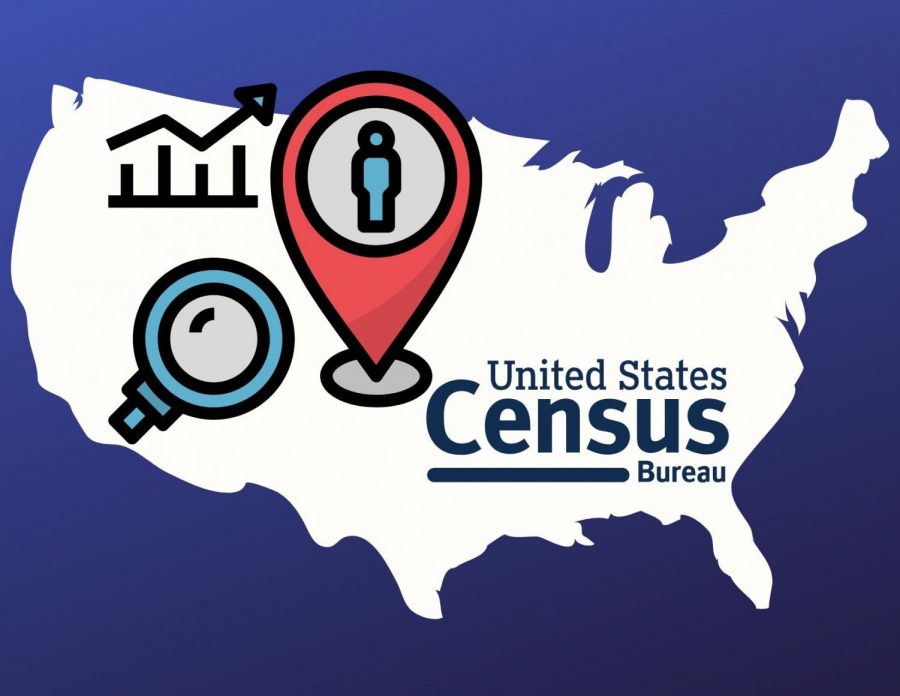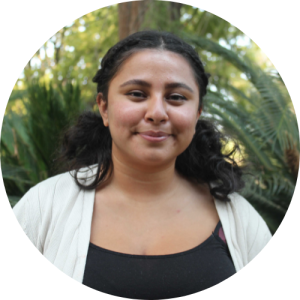Sac State community on the importance of the 2020 census
Students, faculty say participation is vital for representation
Kendra Rivera-Molina
The U.S Census is conducted every 10 years, to count every citizen in order to develop a data base that will assist in improving communities. Graphic made in Canva.
May 2, 2020
Despite shelter-at-home orders, the United States Census Bureau is continuing to advocate for participation in the 2020 census.
Sacramento State’s Associated Students, Inc. has been pushing for student engagement in the U.S census this year amid the COVID-19 pandemic. Virtual workshops were held to inform students on how participation manages how funds are distributed within a community.
RELATED: Sac State ASI seeks student census participation online amid COVID-19 restrictions
Vice President of Academic Affairs, Israel Flores, said via email that ASI planned to raise student awareness with in-person events, but had to cancel those events due to COVID-19. ASI is now actively promoting the census through social media instead. The Instagram account for the Serna Center has been encouraging students to participate.
“I can say that given the current crisis and switching to online and given everything that is going on, students might feel overwhelmed to fill it out and not deem it important,” Flores said.
Story continues below Instagram posts.
The census responses can be done online, by phone or by mail, according to the census website. Each response will be collected until the deadline on Aug. 14.
Andrew Hertzoff, associate professor of political science, said via email that he believes it’s important to make sure everybody is counted for so that funds can be distributed fairly.
According to the census website, “the Census Bureau’s mission is to serve as the nation’s leading provider of quality data about its people and economy.” The site shows the current response rate in California is 53.2%, with Sacramento at 58.4%.
“People need to know which areas are growing, which are shrinking, and who makes them up,” Hertzoff said.
Christopher Winters, a history major at Sac State, said completing the census is important because it may aid a community in receiving more assistance.
“It helps secure funding for the whole community and helps the government get a more accurate count on us,” Winters said. “By not doing it, we give ourselves a disadvantage.”
When the census is accurately completed, it guides federal, state and local governments on where funding is needed. Privacy is also important for the census. They will never ask any questions regarding citizenship but rather focus on living circumstances.
The public questionnaire asks questions like, “What is your telephone number?” and “How many people were living or staying in this house, apartment, or mobile home on April 1, 2020?” as well as a person’s name, sex and race.
RELATED: FAQ: What is the U.S Census? Should you participate?
Child development major, Trinity Wells, first heard about the census when she was in middle school and as she got older, Wells realized how essential participation is when counting minority groups. Wells, who identifies as Black and Pacific Islander, said her demographic is undercounted due to lack of participation.
“It’s important to make sure that you’re known and that whatever community you identify with is known as well,” Wells said.
Statistics from census.org show that 0.2% of the counted population in the U.S. identify as Pacific Islander and about 13.4% identify as either Black or African American. According to the census, this kind of data helps federal agencies monitor compliance with anti-discrimination provisions like the Voting Rights Act, the Civil Rights Act or Equal Employment Opportunities.
Mo Augello, an undeclared student at Sac State, said the census questionnaire leaves out important questions that could determine how funds are spread, like asking about every participant’s income.
“I don’t really know how they [the government] would offer financial help,” Augello said. “I just feel they should be asking about our financial status and stuff like that if they really wanted to make a difference.”
To learn more about the U.S. Census, visit the site here for more information.
Additional reporting by Kendra Rivera-Molina.




































































































































